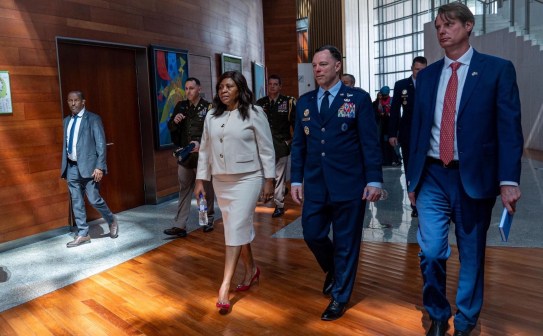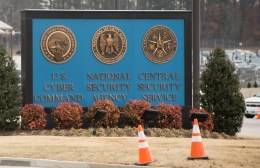Pentagon network defense arm conducting intelligence for cyber pilot

BALTIMORE — The Pentagon’s network protector is running a pilot to improve how it does intelligence for defensive cyber.
The pilot is being conducted by Joint Force Headquarters-Department of Defense Information Network — a subordinate headquarters under U.S. Cyber Command responsible for defending the DOD’s network globally — and the Defense Intelligence Agency, which is responsible for providing intel on foreign militaries and owning all the intelligence directorates, or J2s, at the combatant commands.
Expanding beyond just cyberspace, the effort encompasses all-source intelligence, Brig. Gen. Heather Blackwell, deputy commander of JFHQ-DODIN, told DefenseScoop during an interview at the TechNet Cyber conference in Baltimore June 26.
While cyber itself might seem segmented on its own island, an all-source approach is often necessary to understand context regarding breaches or operations. For example, attributing nation-state activity is often an all-source endeavor, using a variety of intelligence streams from technical means to human sources in order to pinpoint the actor that’s responsible.
In a cyber defense scenario, having all-source intelligence can help defenders better understand which actors might be targeting them, what techniques those actors tend to use to give them a leg up on defense, and what they might be going after.
“How do we start doing better at using commercial intelligence with exquisite intelligence from NSA?” Blackwell said. Officials are looking at ways to “put it all together and use it to help us focus our defensive actions.”
The pilot also serves to help JFHQ-DODIN and intelligence personnel better understand each other.
DIA has been working for years on how it can better provide foundational cyber intelligence.
“At the same time, I’d argue that it’s also on the cyber personnel to better understand how I put demands into the intelligence system to say, ‘Hey, I want intel on this particular piece of equipment for that particular actor,’” Blackwell said. “I would say our cyber warriors need to put better RFIs into the intel system. It’s the education on both sides.”
The pilot began at the beginning of June and is expected to produce results by the end of the year.






